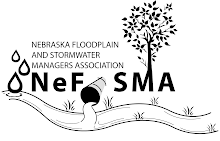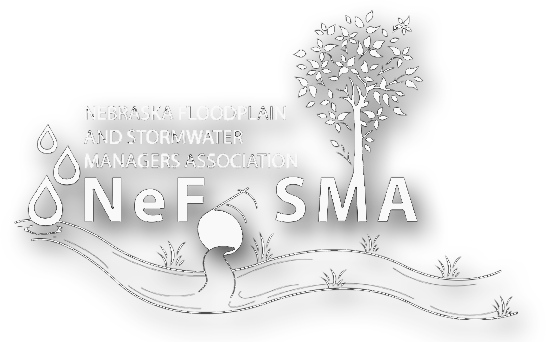On March 16, Bruce Ferguson with University of Georgia presented his observations about the evolution of porous pavements in North America to about 40-50 audience members at the UNL Water Center in Hardin Hall. Bruce encouraged the audience that many of the questions that have circled porous pavements in the past are now being resolved and answered through good research. He cited the great on-going work within the industry to define standards of practice that will help ensure the appropriate outcome once construction is completed. Standards such as ASTM C 1688 for material density, ASTM C 1701 for infiltration, ASTM C 936, 902, and 1272 for block pavers will all go a long way to help ensure the stormwater BMP is effective for the longest amount of time. Of course, a rigorous maintenance schedule is required to keep porous pavement working as designed. Bruce also highlighted some practical aspects of pervious pavements over standard pavements like developer cost savings and increased land use development densities.
During one segment of his presentation, he made the claim that using the correct installation techniques will create an underground environment where "oil ceases to exist". I had to write the quote down to ask him to clarify during the question and answer period. The bold claim honestly sounded a bit "Billy Mays-ish". But, one of the looming concerns that always comes up in discussion about pervious pavement is the possible risk of contaminating groundwater when oils seep through the surface of parking lots. Bruce referenced a 1990 Coventry Polytechnic (UK) study that could bring light to the subject of what soil micro-organisms do to oil in the soil column. This is the hyperlink I found which you can read at your leisure. What do you think? Can we "buy the claim" that, if pervious pavements are constructed and maintained correctly the question of oil leaching to groundwater can be put to rest? Leave your thoughts in the comments below.
If you missed this lecture, NeFSMA encourages you to take advantage of the next free events scheduled Wednesdays from 3:30-4:30. Highlighted speakers include Dr. John Gulliver speaking on Innovations in Stormwater Treatment on March 30, Bill Hunt speaking on Research and Design of Green Stormwater Management Practices on April 13, and Tom Liptan speaking on Integrating Water and Vegetation to Transform Our Cities: Experiences from Portland, OR. Put them on your calendars now if you haven't already. We'll see you there.
About Our Association

- Nebraska Floodplain and Stormwater Managers Association
- The Nebraska Floodplain and Stormwater Managers Association (NeFSMA) is an active organization of over 100 members representing over 50 organizations. NeFSMA pursues multiple purposes including: 1.)promote public awareness of floodplain and stormwater management; 2.) promote the professional status of floodplain and stormwater management and secure all benefits resulting there from; 3.) promote cooperation and information exchange between individuals and entities concerned with floodplain and stormwater management; 4.) keep individuals concerned with floodplain and stormwater management well informed through educational and professional seminars and to provide a method for dissemination of information, both general and technical; 5.) inform and educate concerned individuals of pending floodplain or stormwater legislation, funding and other related management matters. Please browse our website to learn more about NeFSMA at www.nefsma.net. If you are interested in joining, either contact one of the board members or complete the membership form.
Thursday, March 17, 2011
Bruce Ferguson talks at UNL about Pervious Pavements in North America
Labels:
Education,
LID,
Maintenance,
Research,
Stormwater
Subscribe to:
Post Comments (Atom)

No comments:
Post a Comment